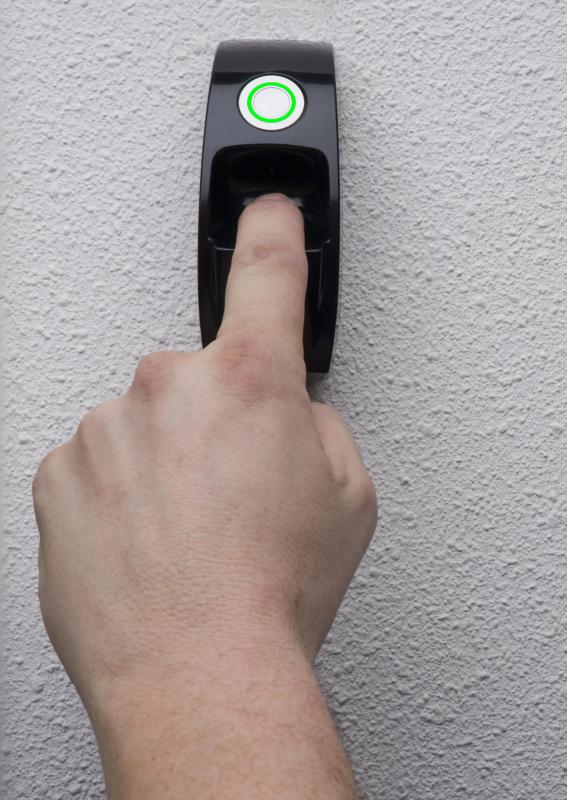At WiseGEEK, we're committed to delivering accurate, trustworthy information. Our expert-authored content is rigorously fact-checked and sourced from credible authorities. Discover how we uphold the highest standards in providing you with reliable knowledge.
What is Electronic Fingerprinting?
Electronic fingerprinting is fingerprinting which is accomplished with the use of electronic equipment to capture an image of the subject's fingerprints. This technique is also sometimes known as inkless, live scan, or live capture fingerprinting, and it is in increasingly common use all over the world. Equipment for electronic fingerprinting is sold by a number of companies, with many manufacturers also offering training classes to buyers so that they can learn how to use the equipment.
In electronic fingerprinting, the fingers of the subject are rolled over a scanning bed which picks up the details of the fingerprints. The machine may be capable of printing out a card with the person's fingerprints, of adding fingerprints to identifications, and of storing the data electronically for internal use. In addition, the data can be sent out electronically for matching with remove databases.

With electronic fingerprinting, the turnaround on a set of fingerprints can be as little as 24 hours. The scanned fingerprints are sent to a central database for matching and the process can be largely automated. This can be used to quickly identify someone, or in a background check where people want to see if someone's fingerprints are on file as being associated with a crime. Electronic fingerprinting can also be used to generate biometric databases for companies which use such systems, and to create a file for someone so that in the event that she or he is lost or involved in a crime, there will be records available for quick matching.

Many companies request live scans from all new employees. In some cases, the company may perform the scan in house. In other cases, the work will be contracted out; a new employee may go, for example, to the police station for fingerprinting. Fingerprinting with a live scan or another service is also commonly required for certain types of government jobs, background checks for weapons, and similar situations. In all of these cases, opting for electronic fingerprinting can speed the process considerably.
People who are asked for their fingerprints in connection with employment may be able to opt out, although this may also mean that the company declines to hire them. People can also opt to forgo fingerprinting to cancel an application for a concealed weapons permit or background clearance. However, there are settings in which fingerprinting is mandatory; when someone is suspected of a crime or processed through a jail, for instance, opting out of fingerprinting is not available.
AS FEATURED ON:
AS FEATURED ON:












Discussion Comments
@NathanG - I like the fingerprint scanner device except when it rejects my fingerprints. These things sure are picky.
We use a fingerprint reader at work which basically logs us into the network. The device works great. I have only one complaint—I’ve become so dependent upon it, that sometimes I forget my password.
There are situations where I get prompted for my password, like if we’ve had an outage or something, and I have to get the I.T. guy to log me back in. Other than that I have no issues with it nor does it bother me that my fingerprint is stored in a database somewhere.
Post your comments